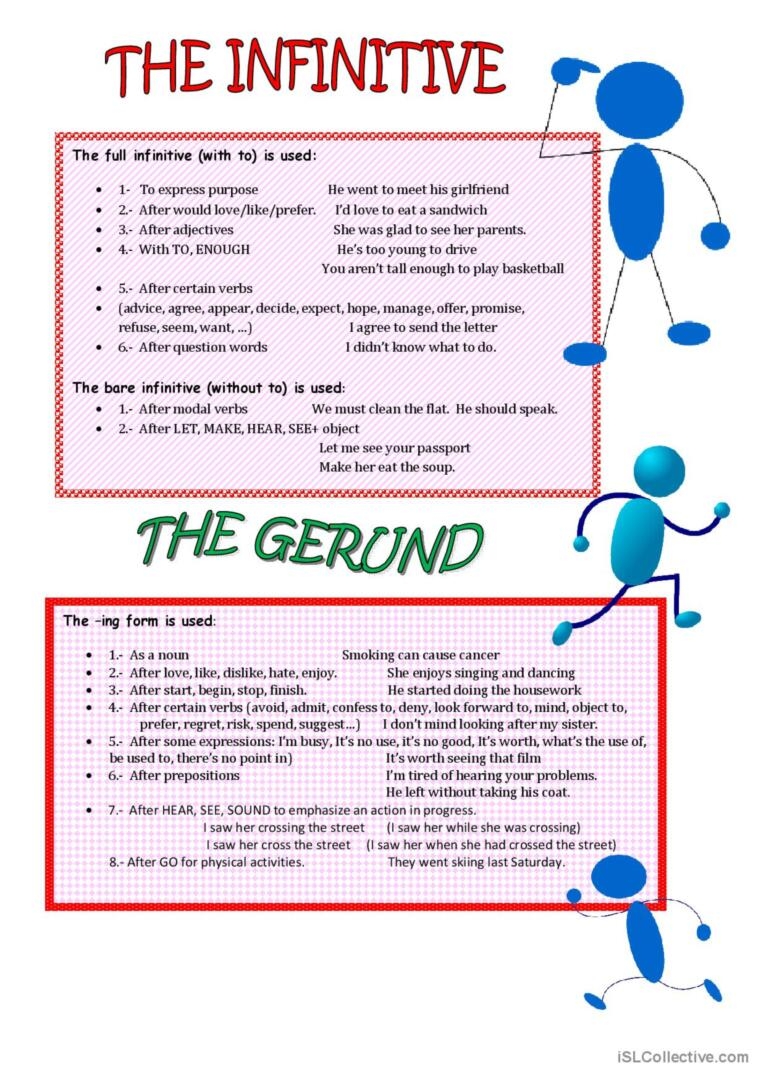Understanding when to use infinitives or gerunds can be a tricky aspect of English grammar for many learners. Both infinitives and gerunds are forms of verbs that can act as nouns, but they are used in different contexts. To help you practice and improve your understanding of when to use infinitives or gerunds, here are some exercises that you can try.
1. I enjoy (to read / reading) books in my free time.
2. She promised (to call / calling) me after the meeting.
3. He needs (to study / studying) harder for the exam.
4. They decided (to go / going) on a trip next weekend.
5. My favorite hobby is (to bake / baking) delicious cakes.
By completing this exercise, you can practice identifying when to use infinitives or gerunds based on the context of the sentence. Pay attention to the verbs that come before the blank and choose the correct form accordingly.
Exercise 2: Rewrite the sentence using the other form (infinitive or gerund)
1. I stopped smoking last year. -> I stopped (to smoke / smoking) last year.
2. She enjoys playing the piano. -> She enjoys (to play / playing) the piano.
3. They plan to visit the museum tomorrow. -> They plan (to visit / visiting) the museum tomorrow.
4. He avoids eating junk food. -> He avoids (to eat / eating) junk food.
5. We need to finish our homework. -> We need (to finish / finishing) our homework.
This exercise will help you practice using both infinitives and gerunds in sentences and understanding how the meaning of the sentence can change based on the form used. Pay attention to the verb tense and the context of the sentence when making your choice.
Overall, practicing with these exercises can help you improve your understanding of when to use infinitives or gerunds in English grammar. Remember to pay attention to the context of the sentence, the verb that precedes the infinitive or gerund, and the overall meaning you want to convey. With practice, you will become more confident in using both forms correctly.
Keep practicing and don’t be afraid to make mistakes. Learning a new language takes time and effort, but with dedication and practice, you can improve your skills and become more fluent in English.
